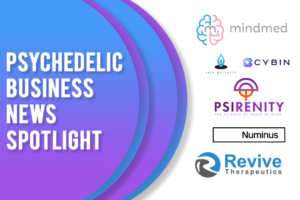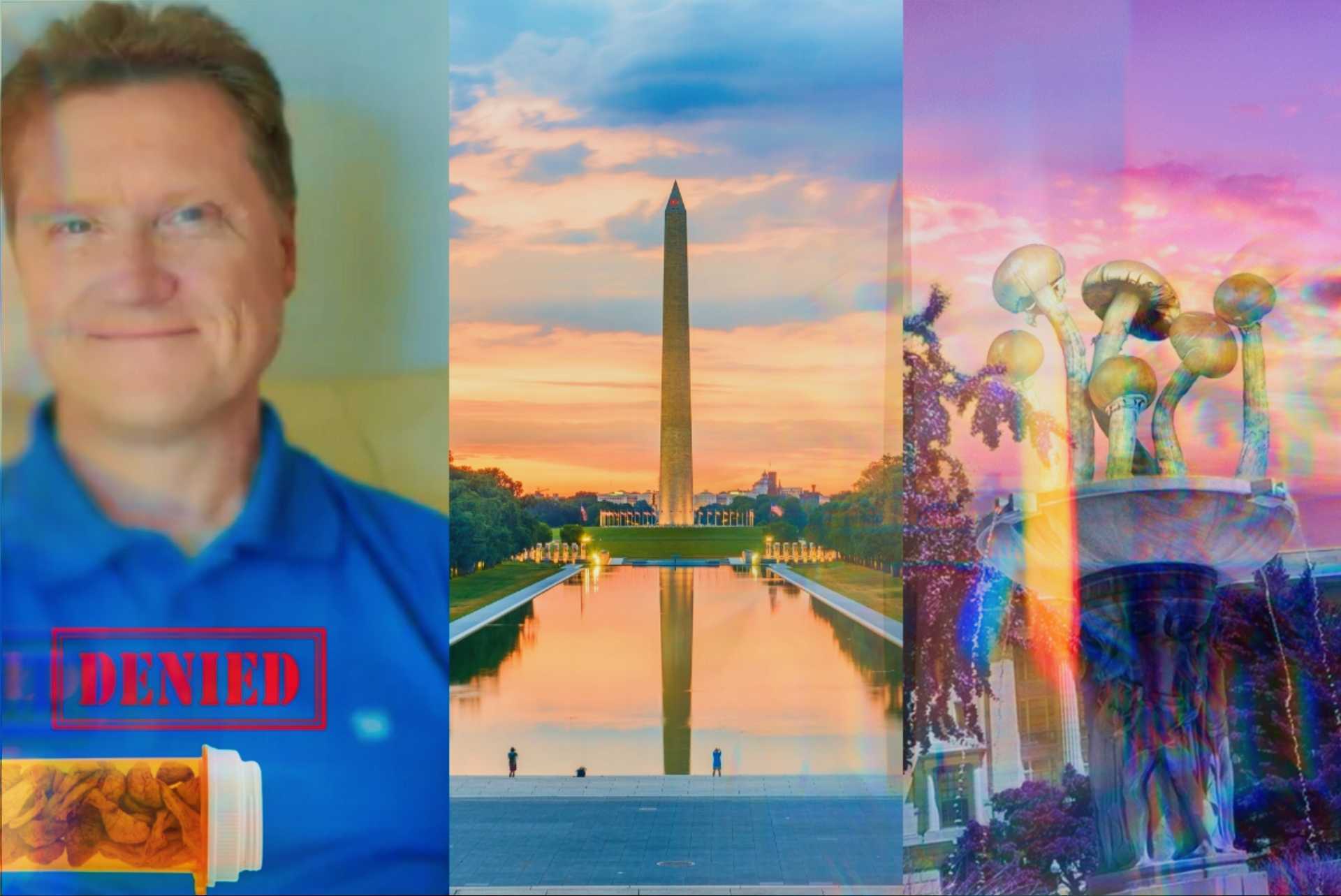
Psychedelic news stories are everywhere these days. Health Canada’s decision to deny a terminally ill Saskatoon man permission to continue psilocybin therapy has drawn a lot of attention and criticism from psychedelic advocates. But on a positive note, the first sale of pharmaceutical-grade psilocybin has occurred in Australia, and a DMT clinical trial has announced more positive results that are making waves in the psychedelic research industry. Plus, both Missouri lawmakers and Washington policymakers have approved their respective psychedelic research bills this week, which could signify an exciting shift in attitudes towards psychedelics in the US.
[ez-toc]
Health Canada denies terminally ill Saskatoon man permission to continue psilocybin mushroom therapy

“No.”
Thomas Hartle waited 511 days to find out whether he could continue to use psilocybin therapy under an exception to Canada’s drug laws and has finally received his answer.
He was the first person in Canada to complete a legal therapy session involving psilocybin to treat his end of life anxiety. The sessions were life changing, he says, but after one year his permission expired in October 2021 and he had to reapply.
This week, Health Canada responded that they intend to refuse his request.
“My options are really pretty limited,” Hartle said in an interview. “I can either just try to muddle through life without having any treatment or, you know, I would have to seek something in the underground, like so many other people have had to do, although obviously it’s a long ways away from my first choice.”
The letter itself from Health Canada says Hartle should pursue psilocybin through other opportunities.
“After careful consideration, I intend to refuse your request for a subsequent subsection 56(1) exemption, on the basis that there are existing regulatory pathways through which access to a legal source of psilocybin may be sought, such as SAP,” wrote Jennifer Saxe, Director General of Health Canada’s Controlled Substances Directorate.
Read: A Whole New Mushroom Convoy Pulls Up to Parliament
First sale of pharmaceutical-grade psilocybin into growing Australian market
Mindset Pharma Inc (CSE:MSET, OTCQB:MSSTF) said PharmAla Biotech (CSE:MDMA) Holdings Inc has completed the first sale of a quantity of Mindset’s pharmaceutical grade (cGMP) psilocybin under the companies’ exclusive sales agreement.
The psilocybin will be purchased by ResetMind Sciences Limited, a Western Australian-based company focused on psychedelic medicines. Reset recently received human research ethics committee approval for a clinical trial investigating psilocybin-assisted psychotherapy protocols for patients with treatment resistant major depressive disorder.
Read: Australia Reschedules Psilocybin and MDMA to Begin Treating TRD and PTSD
PharmAla is a biotechnology company focused on the research, development, and manufacturing of MDXX class molecules, including MDMA.
Mindset Pharma is a drug discovery and development company focused on creating optimized and patentable next-generation psychedelic medicines to treat neurological and psychiatric disorders. It was established to develop next-generation pharmaceutical assets that leverage the breakthrough therapeutic potential of psychedelic drugs.
With growing interest and a recent policy approval, Australia seems to be taking a strong position for the future of the psychedelic research industry.
Former NFL doctor joins program using psychedelics to treat brain injuries

Algernon Pharmaceuticals Inc. have announced, via a press release, that they have appointed former NFL Neurological Player Care Safety Director Dr. David Brody to their advisory board.
Algernon is currently developing methods of treating traumatic brain injuries (TBIs) with N,N-Dimethyltryptamine, a substance better known as DMT.
Algernon is also involved in clinical trials of DMT to treat strokes. Part of the reason Algernon began exploring the use of DMT for TBIs is because there are many commonalities between symptoms of stroke and TBIs, including neuroinflammation and mitochondrial dysfunction.
Another reason why Algernon is hopeful that DMT will prove effective in treating TBIs is because DMT increases the production of a protein known to play a key role in neuroplasticity (the brain’s ability to reconfigure itself when damaged). Algernon also notes that DMT has already shown a therapeutic potential for dealing with psychological and cognitive problems, both of which can result from TBI.
All blows to the head, whether they produce symptoms of concussion or not, cause the brain to release a protein called “tau”. Tau secretions, which eat away at vital brain structures, cause chronic traumatic encephalopathy (CTE). Symptoms of CTE include depression, cognitive impairment and suicidality.
Read: Prolonged DMT Infusions Could be a Breakthrough for Stoke Patients
DMT trial announces more positive results

London-based biotech Small Pharma announced successful results from a Phase IIa clinical trial of its proprietary compound SPL026. This is an intravenous formulation of DMT that Small Pharma is developing for major depressive disorder (MDD). The study used a sample of 34 patients with moderate to severe forms of the condition. This was a two-stage trial with an initial stage that compared the effects of a single dose of SPL026 to a placebo. Both participant groups were given supportive therapy.
The company reported a statistically significant reduction in symptoms linked to depression two weeks after dosing. The second open-label stage of the trial tracked the effects of a single dose of SPL026 alongside therapy for up to 12 weeks. Small Pharma reported that a “rapid and durable” effect was still observed 12 weeks post-dosing; a reduction of 15.4 on the Montgomery-Asberg Depression Rating scale (MADRS) was recorded at this point.
Other quick recaps in the research space:
- Tryp Therapeutics recently announced interim results from a Phase II trial of psilocybin for binge-eating disorder. Its compound TRP-8802, an oral dose of the magic mushroom’s compound active metabolite, psilocin, reduced daily binge eating episodes by 80% on average.
- Apex Labs was granted approval by Health Canada to commence a large take-home psilocybin clinical trial. The Phase IIb study will explore the safety, efficacy and tolerability of a microdose of the company’s proprietary oral synthetic psilocybin formulation, APEX-52. The study will recruit 294 adults experiencing depression and anxiety symptoms with a confirmed diagnosis of PTSD.
- Terran Biosciences has filed a patent for oral forms of both DMT and 5-MeO-DMT. The company suggests that the compounds can be made orally active using its proprietary prodrug approach. This approach aims to bypass extensive first-pass metabolism in the liver that makes existing DMT formulations ineffective when dosed orally.
Missouri lawmakers approve psychedelic research bill
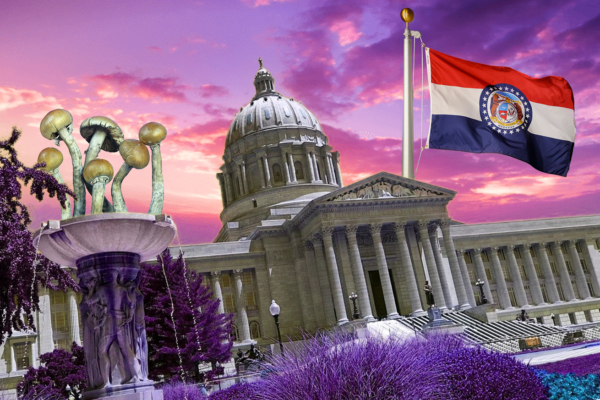
Missouri lawmakers have approved a GOP-led bill in committee to promote research into the therapeutic potential of certain psychedelics such as psilocybin, MDMA and ketamine.
The House Veterans Committee approved HB 1154 from Rep. Dan Houx (R) in a 11-0 vote.
Here’s what Houx’s HB 1154 would accomplish:
- The measure would would authorize a research partnership between the state Department of Health and Human Services and a U.S. Department of Veterans Affairs (VA) hospital to study the efficacy of psilocybin, MDMA and ketamine as alternative therapies.
- Specifically, the researchers would need to explore the potential therapeutic benefits of the psychedelics on PTSD, severe depression, substance misuse disorder and people in end-of-life care.
- The department would be required to carry out a clinical trial involving the substances and review the existing scientific literature on their medical potential.
Another bill that was on the committee’s agenda, HB 869 from Rep. Tony Lovasco (R), would have provided people who use psilocybin to treat certain conditions with an affirmative defense to avoid prosecution, although members ended up not considering it.
Here’s what Lovasco’s HB 869 would accomplish:
- The bill would provide therapeutic access to psilocybin for people with serious mental health conditions such as post-traumatic stress disorder (PTSD), severe depression and terminal illness.
- It doesn’t seek to amend state drug statute by legalizing psilocybin; rather, it would provide affirmative defenses against criminal prosecution for patients who possess up to four grams of the psychedelic, as well as doctors, caregivers and professionals who provide psilocybin services.
- The state Department of Health and Senior Services (DHSS) would hold regulatory responsibility.
- Any person could petition the department to add a qualifying condition for psilocybin, and regulators must approve the petition if the person establishes that there’s evidence that the natural medicine “benefits persons with the proposed condition in a manner equal to or greater than the benefit” of psilocybin for other conditions that are already approved.
- “The only thing currently keeping people from accessing this treatment is the government. Plenty of people are going overseas or out of state currently to get the help that they need, because they’re not allowed to here in Missouri. That’s wrong,” he said. “House Bill 869 provides an opportunity for those folks to get the help that they need here today, rather than waiting.”
Read: Virginia Senate Approves Psilocybin Rescheduling Bill, Paving the Way for Therapeutic Use
Policy news at the federal level as Cory Booker and Rand Paul team up to file new bill aimed at rescheduling psychedelic breakthrough therapies
Bipartisan and bicameral congressional lawmakers have filed an updated version of a bill to streamline the federal rescheduling of “breakthrough therapies” such as psilocybin and MDMA to promote research and treatment development.
Sens. Cory Booker (D-NJ) and Rand Paul (R-K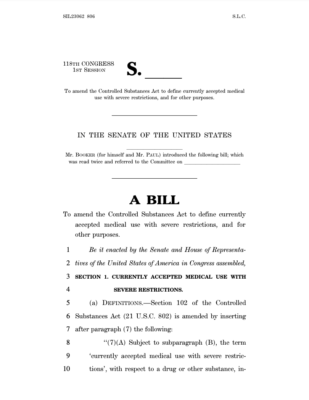
The legislation would amend the federal Controlled Substances Act (CSA) by creating a procedure through which current Schedule I drugs that are deemed breakthrough therapies by the Food and Drug Administration (FDA), or qualify for a waiver under the federal Food, Drug, and Cosmetic Act (FDCA), could be reduced to a lower schedule which would make them easier to study and promote drug development efforts.
If a substance meets either of those above criteria, they would be placed in Schedule II, which is reserved for drugs with “currently accepted medical use with severe restrictions.” Common schedule II substances include morphine, opioid based painkillers, and methamphetamine.
“According to recent studies, certain Schedule I substances such as MDMA and psilocybin could offer major advancements in the treatment of depression, severe post-traumatic stress disorder, and addiction,” Booker said in a press release. “This bill will eliminate unreasonably burdensome rules and regulations that delay or prevent researchers from studying these breakthrough mental health treatments, and will provide access to these promising therapies for eligible patients who urgently need care.”
An important note, the new legislation now includes a new section that states any drug moved from Schedule I to Schedule II under the breakthrough therapy or FDCA waiver standards could be placed back in the strictest category (schedule I) if it “no longer has a currently accepted medical use with severe restrictions” and the head of the U.S. Department of Health and Human Services (HHS) recommends it to the attorney general.
If that happens, “the Attorney General shall, not later than 90 days after receiving written notification from the Secretary, issue an interim final rule controlling the drug,” the bill text says.
Hawaii approves major marijuana legislation through state senate, psychedelic research bills also making progress

The Senate Cannabis Legalization Bill, sponsored by Sen. Joy San Buenaventura (D), cleared the chamber in a 22-3 vote this past Tuesday (3/7/2023).
The bill would legalize marijuana, and two psychedelics research measures, ahead of a key legislative deadline. The House also separately passed a companion bill to one of the psychedelics proposals.
Here are some of the main components of SB 669, as amended:
- Adults 21 and older would be allowed to purchase and possess up to 30 grams of cannabis and grow up to six plants, only three of which could be mature, for personal use. Adults could also gift marijuana between each other.
- An independent Hawaii Cannabis Regulatory Authority would be established under the Department of Health to regulate the industry, as well as the existing medical marijuana program.
- The market would initially launch through a pilot program whereby existing medical cannabis dispensaries would be able to obtain a dual license to serve both patients and adult consumers.
- Marijuana products would be subject to a 10 percent tax, with revenue going to the state treasury. Cannabis businesses would also be able to deduct businesses expenses as part of the state income tax.
- Under a substitute amendment that was adopted, a prior ban on cannabis vaping products was removed from the bill.
- Language providing a pathway for expungements of certain prior marijuana convictions was added, much to the relief of activists who had criticized the omission of suchprovisions in the as-introduced version.
- Civil penalties for unlicensed cannabis business activity were also added at the request of the state attorney general’s office. Also, lawmakers adopted a requested change to add a track-and-trace requirement for marijuana products.
- To mitigate the risk of creating a monopolized industry, the bill as revised sets caps on the number of marijuana businesses that individual entities could own. There are also new limits on the size of licensed cultivation facilities.
- Adults could not consume marijuana any place where tobacco use is prohibited in the state. Also, condominiums could restrict cannabis smoking in the same way that they’re able to do with tobacco.
Sen. Joy San Buenaventura (D), the bill’s sponsor, said on the floor that the measure “allows us to cut back on the illicit market by allowing free access for only one ounce for recreational use, and it allows for the dispensing of a safer form of marijuana for those who need to use it for [medical] reasons.”
But the proposal’s fate in the House is in question, with the speaker recently stating that he intends to see the issue workshopped over the summer so that lawmakers can develop a “comprehensive” reform proposal that addresses outstanding concerns.
House Speaker Scott Saiki (D) said that he’s communicated to committee leadership that he wants to “wait and take a look at this over the summer and come back with a bill that’s comprehensive and addresses the concerns that are always raised about marijuana use in Hawaii, including the federal restrictions and the law enforcement concerns.”
Regarding the psychedelic legislation, SB 1454 from Sen. Ron Kouchi (D) would establish a state working group to examine the medical and therapeutic effects of psilocybin. It passed unanimously on the consent calendar.
Sen. Chris Lee’s (D) separate SB 1531 would create a state advisory council tasked with exploring state and federal regulations on certain psychedelics, including psilocybin and MDMA, in addition to reviewing scientific literature related to using them for mental health treatment.
Members also approved that bill unanimously.
A House companion version to that bill, HB 1340 from Rep. Adrian Tam (D), advanced through its chamber as well on Tuesday.
Washington psychedelic policy moves back in positive direction as bill approved to prepare state for future psychedelic services
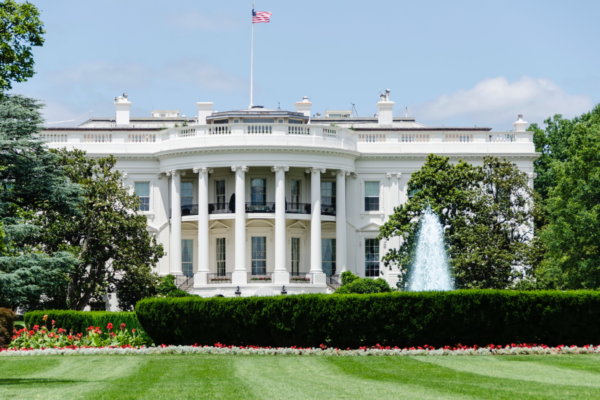
The Washington State Senate has approved a bill to create a task force promoting research into psilocybin and developing a pathway for legal access to the psychedelic.
The legislation is sponsored by Sen. Jesse Salomon (D), which was effectively gutted in an earlier Senate committee and excluded original regulated access provisions, cleared the full chamber in a 41-7 vote on March 7th 2023. It will now move to the House for further review and a potential vote.
Senate Democrats cheered the passage, but advocates remain disappointed about the extent to which the bill was watered down from its original construction.
“This bill before us is directing agencies to study how to apply this interesting intriguing idea into a legal framework,” the sponsor said on the Senate floor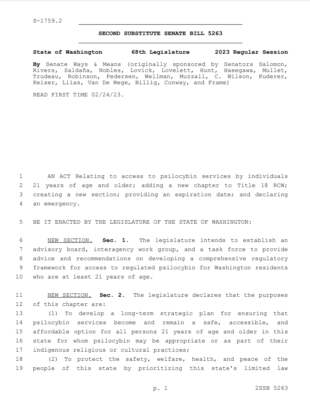
The measure as originally introduced would have allowed adults 21 and older to lawfully use psilocybin in a supervised setting alongside a trained facilitator. In addition, it would have required regulators to accept license applications for product manufacturers, service centers and product testing labs by September 2025.
That bill has been reduced from 81 to 8 pages, and now mostly focuses on the formation of a task force to explore regulatory pathways for the psychedelic in the future. It’s also possible that House lawmakers may seek to further amend it in their chamber.
The task force would be responsible for developing “a long-term strategic plan for ensuring that psilocybin services become and remain a safe, accessible, and affordable option for all persons 21 years of age and older in this state for whom psilocybin may be appropriate or as part of their indigenous religious or cultural practices,” the text says.
This policy follows other similar task force creation going on throughout the US.
Read: More and More Psychedelic Reform Bills In the Pipeline Throughout the United States





